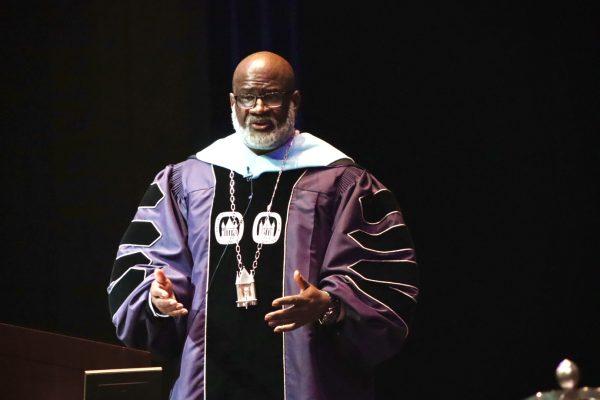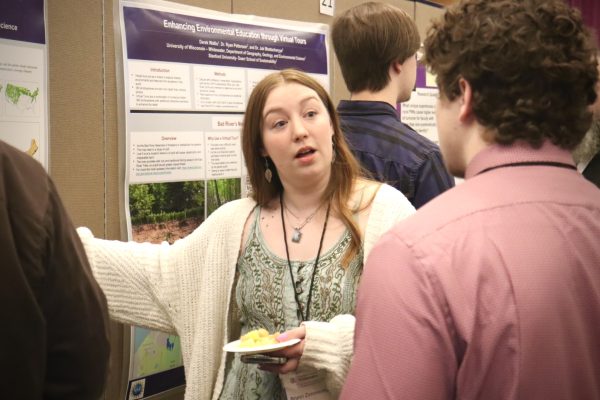Coronavirus and the state of Wisconsin
March 13, 2020
COVID-19, otherwise known as Coronavirus, has officially been declared a pandemic by the World Health Organization (WHO). With over 134,000 confirmed cases, 4,965 deaths and roughly 114 affected countries as of March 13, it is a growing problem that has begun to affect the United States, including the state of Wisconsin.
Governor Tony Evers declared a public health emergency for the state Thursday, March 12 in response to the growing pandemic and the six confirmed cases in Dane County, Fond du Lac County, Pierce County and Waukesha County.
“Five cases are in isolation at home, being monitored by local health officials, while one person is currently hospitalized,” said Wisconsin Department of Health Services Secretary Andrea Palm.
In response, many UW schools have switched to online interactions for classes or extended their spring breaks to mitigate the spread of the virus and allow time to make a decision about what to do for the remainder of the spring 2020 semester.
The University of Wisconsin system schools with alternative class plans as of March 13 include Madison, Milwaukee, Eau Claire, Green Bay, La Crosse, Oshkosh, Parkside, Platteville, River Falls, Stevens Point, Stout, Superior and Whitewater.
As of Thursday, March 12, the University of Wisconsin-Whitewater announced it would be extending Spring break by one week early, beginning on March 14 instead of the original start date of March 23. Following the extended break, alternative methods of education will take place from March 30 – April 17.
“I want to emphasize that there are no confirmed cases of the virus on the Whitewater or Rock County campuses,” stated Chancellor Dwight Watson in his announcement to the campus. “That is why we are taking decisive action now to lessen the risk to our community as much as possible. Given the recent information that some of members of our community have traveled to high-risk locations – and out of an abundance of caution – we are taking the following actions to mitigate the spread of COVID-19.”
Coronavirus, according to the Centers for Disease Control and Prevention (CDC), is spread through respiratory person-to-person contact. The most effective way to prevent catching the illness or spreading it is to limit close contact with others, clean your hands often and stay home if you feel ill or exhibit any symptoms.
Some symptoms of Coronavirus include:
Fever
Coughing
Shortness of breath/difficulty breathing
New confusion or inability to arouse
Bluish lips or face
Persistent pressure or pain the chest
Wisconsin, as well as many other states, have postponed or cancelled events that would cause a large group gathering.
Although older adults and those with serious medical conditions (heart disease, asthma, weight problems, diabetes, lung disease, etc.) are at a higher risk to obtain COVID-19, it can affect anyone. The CDC and the Department of Health (DoH) urge citizens to get tested if they exhibit symptoms and have potentially been around someone who has tested positive for the virus.
“Global efforts at this time are focused concurrently on lessening the spread and impact of this virus. The federal government is working closely with state, local, tribal and territorial partners, as well as public health partners, to respond to this public health threat,” said the CDC in a response to the growing pandemic. “CDC is implementing its pandemic preparedness and response plans, working on multiple fronts, including providing specific guidance on measures to prepare communities to respond to local spread of the virus that causes COVID-19. There is an abundance of pandemic guidance developed in anticipation of an influenza pandemic that is being adapted for a potential COVID-19 pandemic.”
The University of Wisconsin-Whitewater, the state of Wisconsin and the federal government will continue to monitor the spread of the virus and provide updates as needed.






















